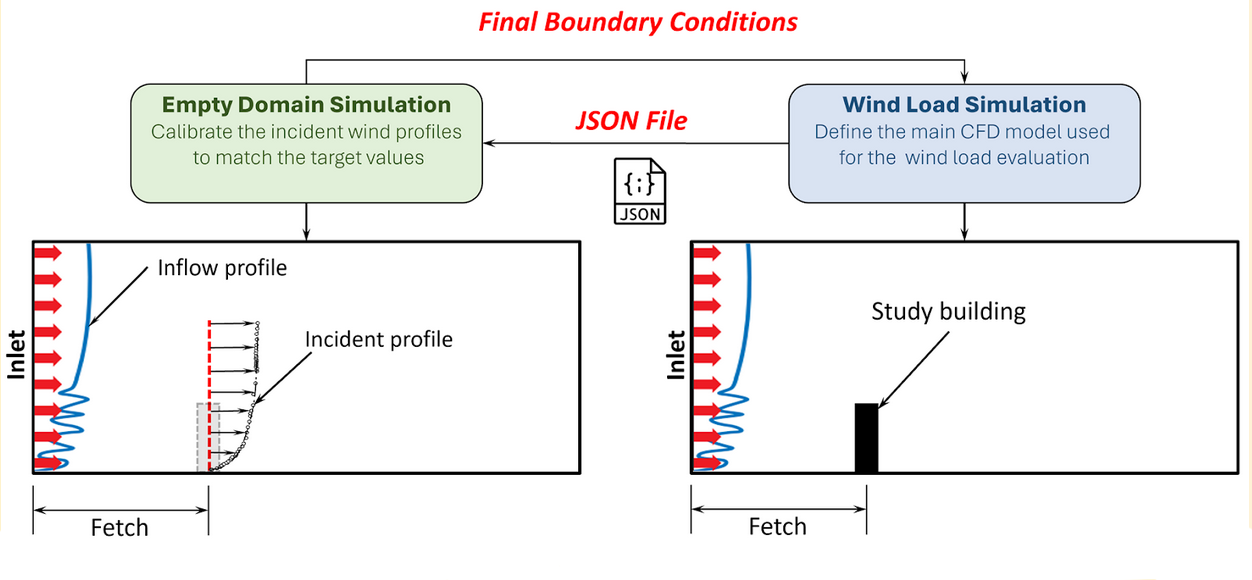The WE-UQ Application provides researchers a tool to assess the response of a building subjected to wind loading. New capabilities of the open-source software allow computing components and cladding loads and area-averaged peak loads.
These applications address basic and advanced modeling, analysis and simulation needs across an array of Natural Hazards. They incorporate uncertainty quantification (UQ) and optimization concepts. Downloadable apps, user manuals, user feedback, and relevant resources are available on the linked resource pages.
The SimCenter Teaching Gallery provides teaching modules on a variety of engineering topics for use in course curriculums. Included in each module are: learning objectives, links to applicable SimCenter Research Tools, class materials (lecture slides, videos, homework assignments, and guides for instructors) as well as contact information for questions. The image below is from the course module "Computational Wind Engineering Educational Module."

End‑to‑End Workflows for Wind Engineering and Uncertainty Quantification
March 11, 2026. Register now.
Operationalizing Virtual Damage Assessments After Major Hurricanes: A Case Study from Hurricane Ian
March 25, 2026. Register now.
Addressing aleatoric variability in surrogate modeling applications for natural hazards engineering
April 9, 2026. Register now.
UC Berkeley, May 28–29, 2026
Have questions? Our staff is here to help — book your office hour now.
Italy, July 1–3, 2026
SimCenter has just published an article in the journal Frontiers in the Built Environment, Earthquake Engineering, entitled “An open-source simulation platform to support and foster research collaboration in natural hazards engineering.”